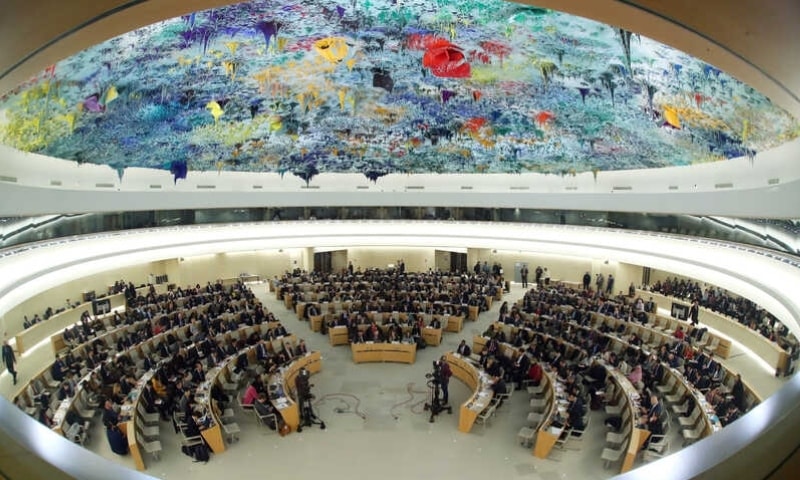GENEVA: Nearly half the countries serving on the UN Human Rights Council have been cited for conducting reprisals against activists, lawyers and others who cooperate with the world body, a study found.
A fresh report from the International Service for Human Rights (ISHR) analysed hundreds of cases over the past decade where people who assisted United Nations bodies in investigating and highlighting rights abuses were subjected to various forms of intimidation and reprisals by states.
Activists, lawyers and other members of civil society who engage with various UN rights-focused sessions and investigations have faced a wide range of reprisals, including threats, defamation, criminal investigations, travel restrictions, detention and physical attacks, including torture, found the report, being launched this week.
“Human rights defenders are integral to the international human rights system,” ISHR co-director Madeleine Sinclair said in a statement.
“If they are not able to safely share information about violations and abuses taking place in their countries, the entire system is undermined.”
The ISHR is a leading rights organisation focused on supporting human rights defenders.
The report, which analysed 709 cases documented in annual reports by the UN secretary general on such reprisals between 2010 and 2020, found that a number of countries stood out as frequent perpetrators.
Bahrain topped the list with 64 cases reported over the decade, followed by Venezuela, Vietnam and Egypt.
Bahrain and Venezuela are currently serving on the 47-member UN Human Rights Council.
They are among 21 current council members cited for reprisals in the past five years alone.
‘Unacceptable’
“This is unacceptable conduct for members of the UN’s most eminent human rights body,” Sinclair said.
One of the report’s main recommendations was for a shift in the consideration of candidates to the council.
“When electing members to the HRC, voting countries should consider whether candidate states have a record of carrying out intimidation and reprisals,” it said.
The International Service for Human Rights warned that the number of cases of reprisals was likely seriously under-reported, particularly in countries where civil society space is known to be closed or highly restricted.
The report found that most reprisals were targeted at people taking part in sessions of the UN Human Rights Council in Geneva.
Those participating in reviews by various UN rights committees and speaking to UN rights investigators were also frequently targeted, it found, while some reprisals also targeted people who engaged with the UN peace operations, and with the General Assembly and Security Council.
And it found that intimidation and reprisals happen around all points of contact with UN actors, including before they travel, at UN headquarters or via remote means of communication.
